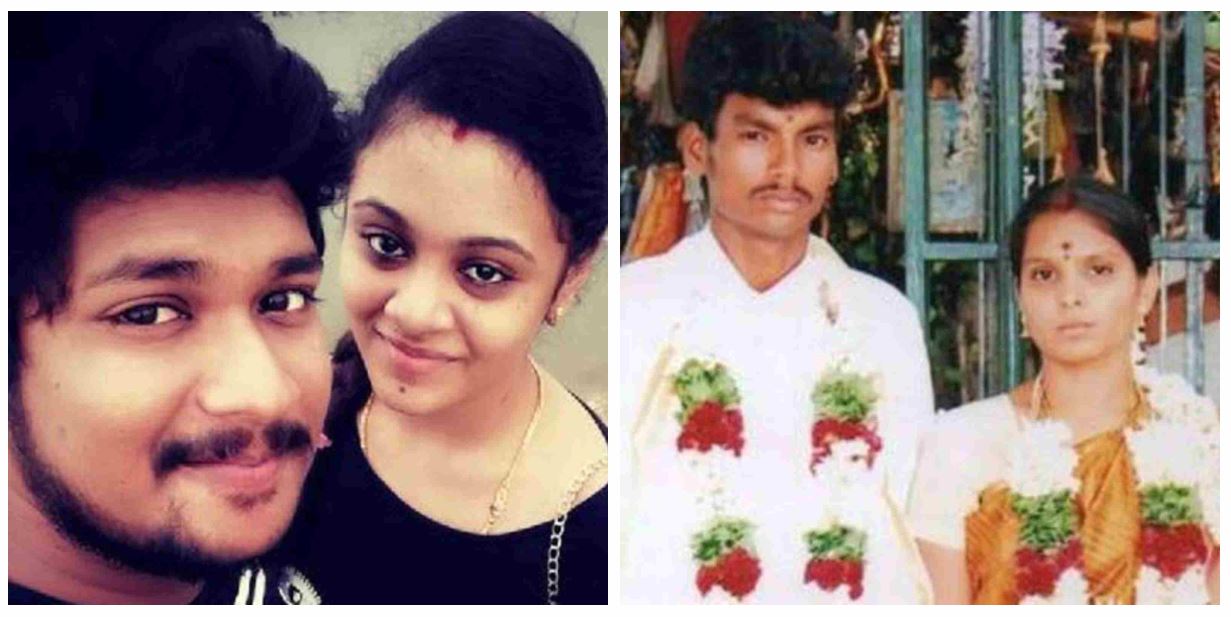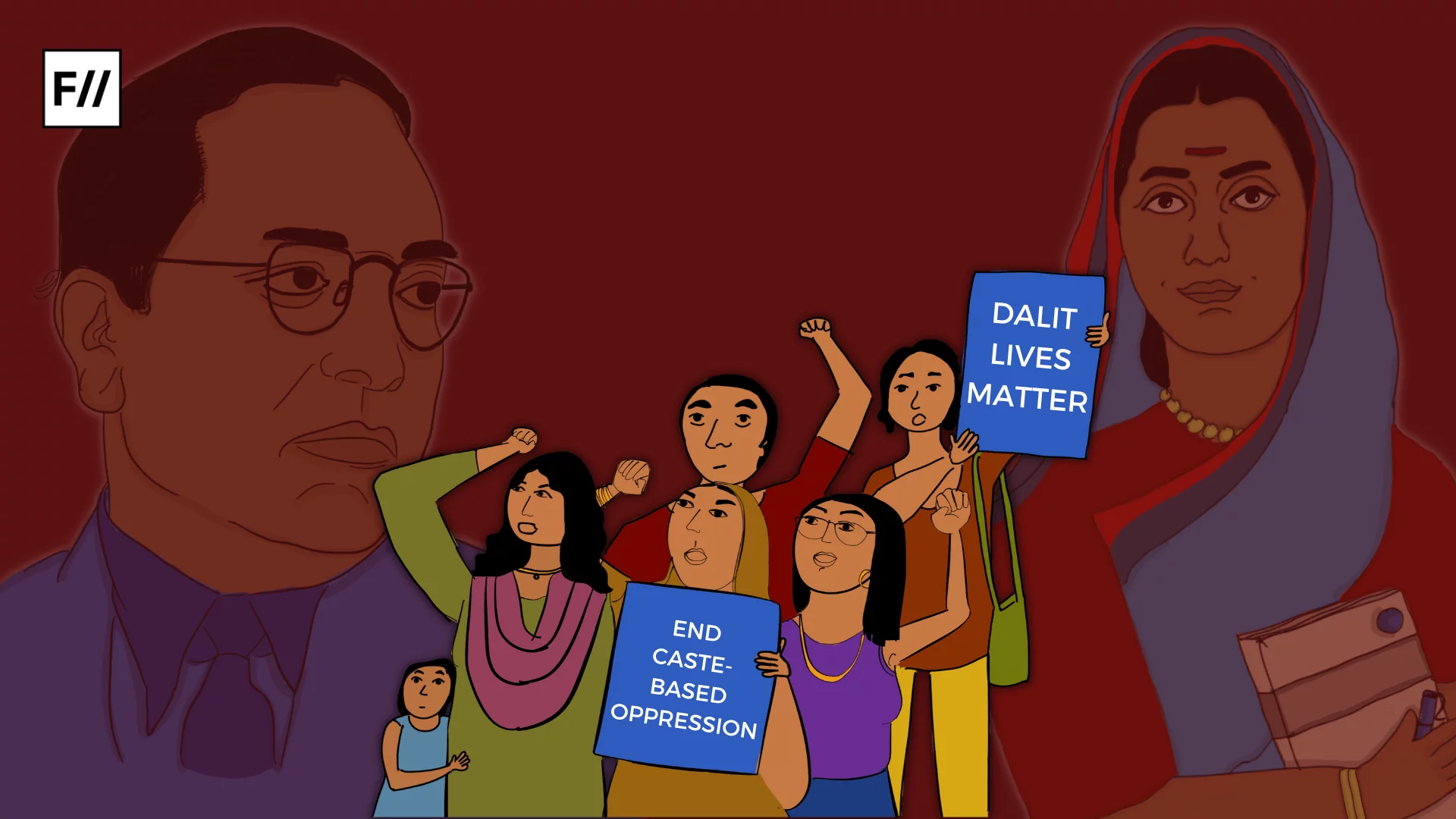As I read the news about Pranay’s murder by the casteist family, I ask myself – how many more deaths will it take for Indians to understand the evil that is the caste system? I sit pondering over this and like many others, I am pretty convinced that the caste system is quite well understood only by those in the upper part of this hierarchy. The ones at the lower end, the so-called ‘lower castes’ suffer as they fail to grapple why they are at the bottom of this system. Is it truly the profession that places them in the lowest end of this hierarchy? Or is it just an excuse for the upper caste to demean the ones they think are low-born? How does a lower caste ‘pariah’ deal with this?
Looking into this particular issue which is similar to many other cases of caste extremism that have happened across India, we realise that caste isn’t just an excuse for hatred. It is the hatred. It spews more hatred than even religion. It has managed to spread its influence through other religions too. It takes one Google search to tell you how caste has penetrated through the supposedly rigid walls of religions that did not even originate in India – religious identities have failed to erase caste identities (ironically some of these religions ideologically lack the very concept of caste).
A Dalit man is denied land for burial in a cemetery for Christians. A Dalit Muslim is humiliated for his caste despite conversion. A Dalit Sikh man is made to drink water in a separate utensil and is asked to use a different road because the upper caste shouldn’t be offended. In a very depressing conversation with a transgender activist, I was told that casteism has managed to divide the LGBT community too. How does it feel to be ousted by the society and by the group that by itself is marginalised?
While it is often said that marriages are made in heaven, how does marriage become hell for inter-caste couples in India? When we try to look for answers for these questions, we are only left with more questions. The state has not condemned it. The centre has not condemned it. The message that is being sent out each time by every murder of a person involved in an inter-caste relationship is clear.
Also read: Pethavan And The Brahmanical Politics Of Hatred: Book Review
Whether it is the case of Shankar and Kausalya or the case of Pranay and Amrutha, the pattern is identical – the father and the family plotting the murder of their ‘son-in-law’. In both the cases, the fathers have established with no hesitation, with no guilt, with no shame that their status in society is important, far more than their own daughters’ lives. One can see this being supported by others who very strongly believe in the caste system and religiously follow it.
While it is often said that marriages are made in heaven, how does marriage become hell for inter-caste couples in India?
What leaves me wondering is the origin of this problem. I recently read an article which is simply just a popular opinion. It stated that in an inter-caste relationship, the boy is usually murdered if he is from the lower caste, but the hostility is less if the girl is from a lower caste. So is it only caste that is a problem here or does patriarchy also play the villain? It is chilling to think that the majority of the society shares this belief and to know that someone can be killed by their own parents for falling in love.
Some point out to the economic difference between the couple. So would the same happen if both of them are from the same community but one of them isn’t wealthy? Will then this murder be justified? It also has to be noted that those belonging to the lower caste are also often the poorer due to oppression of thousands of years. However, the most chilling part has been the media’s negligence. Media has not given its due attention to this case while they have all the time to probe into Sridevi’s natural death. The idea of caste has managed to play with the minds of Indians since ancient times and has survived all invasions and colonisation. And neo-colonisation has left caste system unaffected too.
As we dig deeper into the issue, we find a depressing number of responses to this murder. The followers of casteism unapologetically justify their beliefs and actions. Very often the immediate and the saddest of all responses is that ‘parental love’ for their children pushes the parents to go to the extent of killing their ‘son-in-law’ or their own daughter and at times both of them. I very strongly feel that some of the responses simply reflect their misguided anger.
Most often people without a second thought point at reservation system in education and blame reservation for their anger as they are ‘denied’ admission in educational institutions or government jobs. What they fail to see is that reservation exists because caste system exists. If reservation has to be dropped, the option to fill caste in application forms must also be removed. I have met people who take pride in their caste. How does one feel proud of something that they have not contributed to? Or be proud of something one has no control over? It is the responses of these proud casteists that leave a rather strong scarring impression.
In India we need to realise that caste isn’t just an excuse for hatred. It is the hatred. It spews more hatred than even religion.
It is ironic how Indians often react vehemently to instances of racism in Europe and America where Whites are given a lot of privilege while they themselves enjoy unfair privilege in India because of their caste. Some Indians conveniently point to Vedic texts and maintain that those texts will have to be taken seriously again. There is also a recent attempt to revive everything that is traditional or ancient. They call it ‘Indic Renaissance’. Some profess that the only way for development is by reviving everything that was done during the ancient times say Harappa-Mohenjadaro civilisation. Is being regressive the new progressive? I struggle to fathom.
Japan used to have similar feudal caste system that had a similar system of social hierarchy that ostracised people who were involved in ‘unclean’ profession. Japanese Burakumin was no different from a dalit in India. They were the ‘untouchables’ of Japan. However, the feudal caste system was abolished in the year 1871. Government has taken several initiatives to ensure the safety of these Burakumins. Although there is still a stigma around these communities, the stringent law prevent ill-treatement of Burakumins. We have a real example to tell us what development can happen when caste system is abolished. The question is will the legal system that is dominated by the upper caste ever consider this? Maharashtaran government has suggested implementation of a new law to protect those in inter-caste marriages. Hopefully that will open up more space for constructive debates and changes.
Some have questioned the government’s decision to give a compensation of 5 lakhs to Amrutha. Questioning perhaps can still be justified but some social media users have made an effort to find Amrutha’s profile and abuse her personally. Is the hatred that deep? How jobless and vile does one have to be to abuse someone for government’s decision? Amrutha is expected to tolerate this abuse despite her rejecting the compensation. There is also a speculation of this particular murder inspiring another father Manoharachari to attempt to kill his daughter Madhavi and her husband Sundeep. Fortunately, the couple has survived the injury but both of them are still critical.
How does one follow religion or any institution for that matter, that spews out hatred that makes you kill your own child? Why are Indians more affected by the death of cows than the death of a person of lower caste? Whether the death is caused by a father-in-law or by manual scavenging is still considered irrelevant. A recent study claimed that Indians have changed and that contrary to popular beliefs Brahmins are the most open to inter-caste marriages.
Also read: From Bollywood To The Great Indian Middle Class: Why Does Caste Continue To Be Erased
However, it should also be pointed out that the study noted that these inter-caste marriages did not actually involve the lower castes and only happened among other OFCs. According to the survey, “among the Scheduled Castes (SC), only 4.7 per cent have married outside their caste”. Wonder why? Probably because being alive is better than being in love.
About the author(s)
Nandhini Dharuman is a linguist and a wanna-be herpetologist. She enjoys reading everything but fiction.





I have an opinion. I think the term “honour killing” should not be used especially on a mainstream feminist platform.
Kancha Ilaiah have said the same. It is a caste based atrocity.
https://www.google.com/amp/s/amp.scroll.in/latest/895332/telangana-do-not-describe-caste-based-murders-as-honour-killings-say-activists